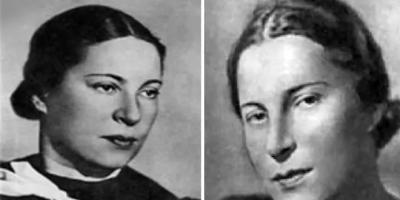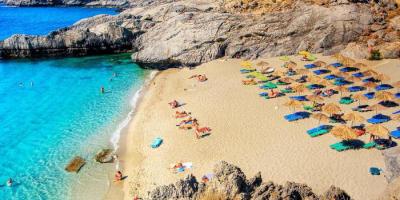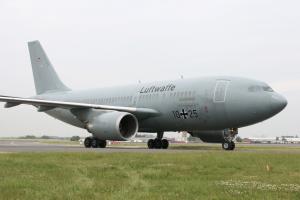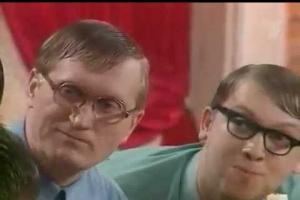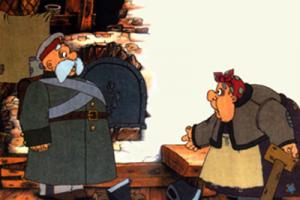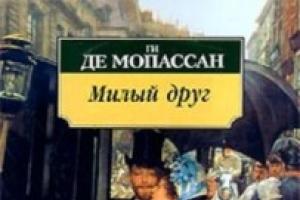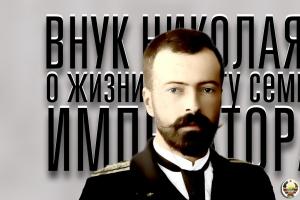The problems of victory are more agreeable than those of defeat, but they are no less difficult.
Проблемы, вызванные одержанной победой, приятней проблем, вызванных поражением, но они не менее трудные.
History is written by the victors.
История пишется победителями.
Study history. In history lies all the secrets of statecraft.
Изучайте историю. В истории есть все секреты искусства управления государством.
History will be kind to me for I intend to write it.
История будет добра ко мне, ибо я намерен её писать.
We have a lot of anxieties, and one cancels out another very often.
У нас много желаний, и очень часто одно исключает другое.
Politics is not a game. It is an earnest business.
Политика — не игра. Это серьезное занятие.
Success is the ability to go from one failure to another with no loss of enthusiasm.
Успех — это способность идти от одной неудачи к другой без потери энтузиазма.
Success is not final, failure is not fatal: it is the courage to continue that counts.
Успех не финал, неудача не смертельна: считается то, что есть мужество продолжать.
When the war of the giants is over the wars of the pygmies will begin.
Когда война гигантов закончится войны пигмеев начнутся.
Great and good are seldom the same man.
Великий и хороший — редко одно и то же лицо.
The price of greatness is responsibility.
Цена величия — ответственность.
All great things are simple, and many can be expressed in single words: freedom, justice, honor, duty, mercy, hope.
Все великие вещи просты, и многие из них могут быть выражены в отдельных словах: свобода, справедливость, честь, долг, милосердие, надежда.
Men occasionally stumble over the truth, but most of them pick themselves up and hurry off as if nothing happened.
Периодически люди спотыкаются о правду и падают, но большинство затем встают и спешат дальше, как будто ничего не случилось.
Courage is what it takes to stand up and speak, Courage is also what it takes to sit down and listen.
Мужество заставляет встать я говорить и мужество же заставляет сеть и слушать.
Never, never, never give in!
Никогда, никогда, никогда не сдаваться!
The power of an air force is terrific when there is nothing to oppose it.
Сила военно-воздушного флота потрясающа, когда ему нечего противопоставить.
I cannot forecast to you the action of Russia. It is a riddle wrapped in a mystery inside an enigma: but perhaps there is a key. That key is Russian national interest.
Я не могу предсказать действий России. Это головоломка, завернутая в тайну, внутри загадки: но возможно, там есть ключ — русский национальный интерес.
The British nation is unique in this respect. They are the only people who like to be told how bad things are, who like to be told the worst. Британцы - единственный народ на свете, который любит, когда им говорят, что дела обстоят хуже некуда.
I hate Indians. They are a beastly people with a beastly religion.
Я ненавижу индейцев. Они ужасные люди со звериной религией.
It has been said that democracy is the worst form of government except all the others that have been tried.
Демократия - самый худший вид правления, не считая всех прочих, что человечество испробовало за свою историю.
Dictators ride to and fro on tigers from which they dare not dismount. And the tigers are getting hungry.
Диктаторы ездят верхом на тиграх, боясь с них слезть. А тигры между тем начинают испытывать голод.
An appeaser is one who feeds a crocodile, hoping it will eat him last.
Миротворец - это тот, кто кормит крокодила в надежде, что тот съест его последним.
If you are going through hell, keep going.
Если вы проходите через ад, продолжайте идти.
If Hitler invaded Hell, I would make at least a favourable reference to the devil in the House of Commons.
Если бы Гитлер вторгся в ад, я бы по крайней мере замолвил за дьявола словечко в Палате общин.
I am always ready to learn, but I do not always like being taught.
Я всегда готов учиться, но мне не всегда нравится, когда меня учат.
The greatest lesson in life is to know that even fools are right sometimes.
Величайший урок в жизни — знать, что даже дураки иногда бывают правы.
Continuous effort — not strength or intelligence — is the key to unlocking our potential.
Непрерывная работа — не сила или интеллект — это ключ к раскрытию нашего потенциала.
To build may have to be the slow and laborious task of years. To destroy can be the thoughtless act of a single day.
Чтобы построить, возможно, понадобится медленная и трудоемкая задача долгих лет. Чтобы уничтожить, достаточно бездумного акта за один день.
I have nothing to offer but blood, toil, tears and sweat.
Мне нечего предложить, кроме крови, тяжелого труда, слез и пота.
It’s not enough that we do our best; sometimes we have to do what’s required.
Не достаточно того, что мы делаем все возможное; иногда мы должны делать то, что требуется.
A pessimist sees the difficulty in every opportunity; an optimist sees the opportunity in every difficulty.
Пессимист видит трудности в каждой возможности; оптимист видит возможность в каждой трудности.
My tastes are simple: I am easily satisfied with the best.
Мои вкусы просты: я легко удовлетворяюсь лучшим.
I am easily satisfied with the very best.
Я легко удовлетворяюсь самым лучшим.
We are stripped bare by the curse of plenty.
Мы раздеты догола проклятьем изобилия.
To improve is to change; to be perfect is to change often.
Улучшение есть изменение; быть совершенным это часто меняться.
However beautiful the strategy, you should occasionally look at the results.
Какой бы ни была красивой стратегия, вы должны время от времени смотреть на результаты.
An aphorism is not an aphorism unless you know what it means.
Афоризм не афоризм, если ты не знаешь, что он значит.
There is no time for ease and comfort. It is the time to dare and endure.
Не время удобств и комфорта. Время отваги и выдерживания.
A fanatic is one who can’t change his mind and won’t change the subject.
Фанатик - это человек, который не может изменить взгляды и не может переменить тему.
A love for tradition has never weakened a nation, indeed it has strengthened nations in their hour of peril.
Любовь к традициям, никогда не ослабевающей нации, действительно усилило её в час опасности.
The first quality that is needed is audacity.
Первое необходимое качество — это смелость (дерзость, нахальность).
Healthy citizens are the greatest asset any country can have.
Здоровые граждане — это величайшее достояние любой страны.
Always remember, that I have taken more out of alcohol than alcohol has taken out of me.
Всегда помни, что я взял от алкоголя больше, чем он забрал у меня.
When I was younger I made it a rule never to take strong drink before lunch. It is now my rule never to do so before breakfast.
В молодости я взял себе за правило не пить ни капли спиртного до обеда. Теперь, когда я уже немолод, я держусь правила не пить ни капли спиртного до завтрака.
Although prepared for martyrdom, I preferred that it be postponed.
Хотя я готов к мученичеству, я предпочел бы, чтобы оно было отложено.
Broadly speaking, the short words are the best, and the old words best of all.
Вообще говоря, короткие слова являются лучшими, а старые слова лучше всего.
Every morn brought forth a noble chance, and every chance brought forth a noble knight.
Каждое утро выпадает благородный шанс, и все шансы выпадают благородным рыцарям.
From Stettin in the Baltic to Trieste in the Adriatic an iron curtain has descended across the Continent.
От Штеттина на Балтике до Триеста на Адриатике железный занавес опустился на континент.
I like pigs. Dogs look up to us. Cats look down on us. Pigs treat us as equals.
Я люблю свиней. Собаки смотрят на нас снизу вверх. Кошки смотрят на нас сверху вниз. Свиньи смотрят на нас как на равных.
Now this is not the end. It is not even the beginning of the end. But it is, perhaps, the end of the beginning.
Теперь это не конец. Это даже не начало конца. Но это, возможно, конец начала.
The inherent vice of capitalism is the unequal sharing of blessings. The inherent virtue of Socialism is the equal sharing of miseries.
Присущая сила капитализма — несправедливое распределение благ. Присущая сила социализма — равное распределения бедствия.
There are a terrible lot of lies going around the world, and the worst of it is half of them are true.
Много ужасной лжи собирается по всему миру, и хуже всего то, что половина из неё верна.
When the eagles are silent, the parrots begin to jabber.
Когда орлы молчат, то болтать начинают попугаи.
I never worry about action, but only inaction.
Я никогда не беспокоюсь насчет действия, только насчет бездействия.
Solitary trees, if they grow at all, grow strong.
Одиночные деревья, если они вырастают, они растут сильными.
If you have ten thousand regulations you destroy all respect for the law.
Если вы имеете десять тысяч ограничений, вы уничтожаете все уважение к закону.
Everyone has his day and some days last longer than others.
Каждый имеет свой день, и некоторые дни длиннее прочих.
No comment is a splendid expression. I am using it again and again.
Без комментариев — это великолепное выражение. Я использую его снова и снова.
A joke is a very serious thing.
Шутка — это очень серьезная вещь.
When you have to kill a man it costs nothing to be polite.
Когда вы должны убить человека, ничего не стоит быть вежливым.
Attitude is a little thing that makes a big difference.
Отношение (позиция) это мелочь, которая имеет большое значение.
Winston Churchill was one of the greatest politicians of the last century. Apart from being a well-known public figure, Churchill was highly talented and even got a Noble prize in Literature in 1901.
Winston Churchill was born in 1874, Woodstick, in the aristocratic family of the Dukes. Young Churchill was taught at home firstly and then sent to St.George’s school. The boy was rebellious and obviously was not a good student. He continued his study at Harrow School for boys and then entered the Royal Military College at Sandhurst.
After Winston had graduated from college he began to travel as a soldier and as a journalist. He went to India in 1896 and wrote his first book there which told about his experience in India’s Northwest Frontier Province. After India Churchill was sent to South Africa and returned to England only in 1900.
As soon as he came back to England, Winston Churchill joined the House of Commons as a conservative. Several years later he became a liberal. During World War I he was the First Lord of the Admiralty and was responsible for the mobilization of the Fleet.
Later Churchill was Minister of Munitions and Minister of War. Churhill became Prime Minister soon after the outbreak of World War II. He was considered to be one of the greatest orators of all times who inspired the nation by his energy and insistence.
In 1953 Churchill was made a knight by Queen Elizabeth. The great politician died in 1965, one year after retiring from Parliament.
Перевод:
Уинстон Черчилль был одним из величайших политиков прошлого века. Помимо того, что он являлся известной публичной фигурой, Черчилль также был очень талантлив и даже получил Нобелевскую премию в области литературы в 1901 году.
Уинстон Черчилль родился в 1874, в Вудстике, в аристократической семье герцогов. Юный Черчилль сначала обучался дома, а затем был послан в школу Святого Георга. Мальчик был бунтарем и очевидно не был хорошим учеником. Он продолжил свое обучение в школе для мальчиков, а затем поступил в Королевскую Военную академию в Сандхерсте.
После окончания академии Уинстон начал путешествовать в качестве солдата и журналиста. В 1896 году он был в Индии, где написал свою первую книгу о своем нахождении там. После Индии Черчилль был отправлен в Южную Африку и вернулся в Англию лишь в 1900.
Как только он вернулся в Англию, Уинстон Черчилль стал членом консервативной партии в Палате Общин. Несколькими годами позже он перешел на сторону либералов. Во время первой Мировой Войны он был первым Лордом Адмиралтейства и был ответственным за мобилизацию флота.
Позднее Черчилль стал министром по поставкам снаряжения и военным министром. Черчилль стал Премьер-министром вскоре после начала второй Мировой Войны. Он считался одним из величайших ораторов всех времен, который вдохновлял народ своей энергией и упорством.
В 1953 году Черчилль был посвящен в рыцари королевой Елизаветой. Великий политик умер в 1965 году, через год после своего ухода в отставку.
Слова и выражения:
Apart from – кроме, помимо
Duke – герцог
Rebellious – непослушный, мятежный, бунтарский
House of Commons – Палата Общин (Парламент)
Fleet – флот
Munitions – боевые припасы, снаряжение
Outbreak – начало
To retire –уйти в отставку/на пенсию
Winston Churchill Essay, Research Paper
Winston Churchill was born on November 30, 1874, at Blenheim Palace, the famous palace near Oxford that was built by the nation for John Churchill, the first duke of Marlborough. Blenheim meant a lot to Winston Churchill. It was there that he became engaged to his wife, Clementine Ogilvy Hozier. He later wrote his historical masterpiece, The Life and Times of John Churchill, Duke of Marlborough. With English on his father’s side and American on his mother’s, Sir Winston Leonard Spencer Churchill expressed the national qualities of both his parents. His name proves the richness of his historic background: Winston, after the Royalist family, who the Churchill’s married before the English Civil War; Leonard, after his remarkable grandfather, Leonard Jerome of New York; Spencer, the married name of a daughter of the first duke of Marlborough, from who the family descended; Churchill, the family name of the first duke, which his descendants maintained after the Battle of Waterloo. All these strands come together in a career that had no resemblance in British history for richness, length, and achievement. Churchill took a leading part in laying the foundations of the welfare state in Britain, in preparing the Royal Navy for World War I, and in settling the political boundaries in the Middle East after the war. In World War II he began as the leader of the United British Nation and Commonwealth to resist the German domination of Europe, as an inspirer of the resistance among free people, and as a prime architect of victory. In this, and in the struggle against communism later, he made himself an essential link between the British and American people, for he saw that the best defense for the free world was for the English-speaking people to come together. (Down 133).
Strongly historically minded, he also had predictive foresight: British-American unity was the message of his last great book, A History of the English-speaking Peoples. He was a combination of a soldier, writer, artist, and statesman. He was not so good as a party politician. He stands out not only as a great man of action, but as a writer of it too. He was a genius; as a man he was charming, happy, and enthusiastic. As for personal faults, he was bound to be a great egoist; so strong a personality was likely to be overbearing.
He was something of a gambler, always too willing to take risks. In his earlier career, people thought him of unbalanced judgment partly from the very excess of his energies and gifts. That is the worst that can be said of him
We know all there is to know about him; there was no disguise. His father, Lord Randolph Churchill, was a younger son of the seventh duke of Marlborough. His mother was Jennie Jerome; and as her mother, Clara Hall, was one-quarter Iroquois, Sir Winston had an Indian strain in him. Lord Randolph, a brilliant Conservative leader who had been chancellor of the exchequer in his 30’s, died when he was only 46, after ruining his career. His son wrote that one could not grow up in that household without realizing that there had been a disaster in the background. It was an early spur to him to try to make up for his gifted father’s failure, not only in politics and in writing, but on the turf.
Young Winston, though the grandson of a duke, had to make his own way in the world, earning his living by his mouth and his pen. In this he had the leadership of his mother, who was always courageous and fearless. Rejoining his regiment, he was sent to serve in India. Here, besides his addiction to polo, he went on seriously with his
education, which in his case was mostly self-education. His mother sent him boxes of books, and Churchill absorbed the whole of Gibbon and Macaulay, and a lot of Darwin.
The influence of these authors is noticed through all his writings and in his way of looking at things. The influence of Darwin is distinct in his philosophy of life: that all life is a struggle, the chances of survival favor the fittest, chance is a great element in the game, and the game is to be played with courage, and every moment is to be enjoyed to the full. This philosophy served him well throughout his long life.
In 1897 he served in the Indian army against the uneasy tribesmen of the North-West Frontier, and the next year his first book surfaced, The Story of the Malakand Field Force. He entertained himself by writing a novel, Savrola, which curiously anticipates later developments in history, war, and in his own mind. On the outbreak of the South African War in 1899, he went out as war correspondent for the London Morning Post. Within a month of his arrival, he was captured when acting more as a soldier than as a journalist, by the Boer officer Louis Botha, who became the first prime minister of the Union of South Africa, and a trusted friend.
After being taken to prison camp in Pretoria, Churchill made a dramatic escape and traveled back to the fighting front in Natal. His escape made him world-famous overnight. He described his experiences in a couple of journalistic books and made a first lecture tour in the United States. The proceeds from the tour enabled him to enter Parliament.
On Jan. 23, 1901, Churchill became member of Parliament for Oldham as a Conservative, but he had returned from South Africa sympathetic to the Boer cause, and
his army experiences had made him extremely critical of its command and administration, which he proceeded to attack all along. The tariff proposals of Joseph Chamberlain completed his alienation from the Conservative party, and in 1904 Churchill left the party to join the Liberals. In consequence, he was loathed by the Conservatives for years, and was unpopular with army authorities.
In 1906, he published the official biography, Lord Randolph, a first-class example of his lifelong talent in journalism. In this year, 1908, he married and “lived happily ever after.” During his marriage to Clementine Hozier, they had a son, Randolph, and three daughters, Diana, Sarah, and Mary. He took up painting as a hobby and a comfort, and he remained devoted to it for the rest of his life. His accomplishment in art should not be underestimated.
In 1916, he went back to the army, thoughtfully volunteering for active service on the western front, where he commanded the sixth Royal Scots Fusiliers. But his energy and ability could not be used, and Prime Minister Lloyd George called him back to become minister of munitions. Having lost his seat in Parliament in the 1922 elections, Churchill lived in the political wilderness for the next two years. After various attempts to form an anti-socialist group, he went back to the Conservative party in time to become chancellor of the exchequer in Prime Minister Stanley Baldwin’s.
He was not happy in this office not at ease with economic affairs. During the whole of this disastrous period of 1929-1939, Churchill was out of office. During these years of political frustration he wrote his major works: Marlborough, the first draft of A History of the English-speaking Peoples, a vivid and characteristic autobiography, My
Early Life, a revealing and expressive book, Thoughts and Adventures, and a volume of brilliant portrait sketches, Great Contemporaries. He also began to collect his speeches and newspaper articles warning the country of the rage to come.
On May 10, 1940, Churchill was called to supreme power and responsibility by an unpredictable rebellion of the best elements in all parties. He, almost alone of the nation’s political leaders, had had no part in the disaster of the 1930’s, and he really was chosen by the will of the nation. For the next five years, he held supreme command, as prime minister and minister of defense, in the nation’s war effort. At this point his life and career became one with Britain’s story and its survival. At first, until 1941, Britain fought alone. Churchill’s task was to inspire resistance at all costs, to organize the defense of the island, and to make it the elevation for a final return to the continent of Europe, whose liberation from Nazi tyranny he never doubted. He breathed a new spirit into the government and a new purpose into the nation. Upon becoming prime minister he told the Commons: “I have nothing to offer but blood, toil, tears, and sweat: You ask, what is our policy? I will say: It is to wage war, by sea, land, and air, with all our might. You ask, what is our aim? I can answer in one word: Victory.”
Meanwhile he made himself the spokesman for these purposes among all free people, as he made Britain a home for all the faithful remains of the continental governments. These included the Free French, for Churchill had himself picked out Charles De Gaulle as “the man of destiny.” But Churchill’s personal relationship with President Franklin D. Roosevelt was Britain’s lifeline. Britain had lost most of its army equipment in the fall of France and during the evacuation of the British Expeditionary
Force from Dunkirk in June. Roosevelt rushed across the Atlantic with a supply of weapons that made a beginning.
On Oct. 26, 1951, at the age of 77, he again became prime minister, as well as minister of defense. As the Conservatives held a very small majority and Britain faced very difficult economic circumstances, only the old man’s willpower enabled his government to survive. He held on to see the young Queen Elizabeth II crowned at Westminster in June 1953, attending as a Knight of the Garter, an honor he had received a few weeks earlier. In 1953, also, he received the Nobel Prize in Literature. On April 5, 1955, in his 80th year, he resigned as prime minister, but he continued to sit in Commons until July 1964. Churchill’s later years were relatively calm.
In 1958 the Royal Academy devoted its galleries to a retrospective one-man show of his work. On April 9, 1963, he received, by special act of the U.S. Congress, the unique honor of being made an honorary American citizen. When he died in London on Jan. 24, 1965, at the age of 90, he was acclaimed as a citizen of the world, and on January 30 he was given the funeral of a hero. He was buried at Bladon, in the little churchyard near Blenheim Palace, his birthplace.
Некоторые британцы до сих пор считают его самым выдающимся представителем нации.Биография Черчилля полна интересных моментов, по которым можно судить об определенных чертах характера этого необычного человека.
Черчилль родился в 1874 году в семье герцогов Мальборо-Спенсер. Его отец был известным политиком, а мать – американкой из очень богатой семьи.
Образование
В возрасте 8 лет Уинстона отдали в начальную школу Сент-Джордж, потом перевели в школу сестёр Томсон в Брайтоне. В 1886 году отправили в престижный Харроу, в армейский класс. Потом он учился в Королевской военной академии, которую закончил в звании младшего лейтенанта.
Военная служба
Если следовать краткой биографии Уинстона Черчилля, то 1895-1897 годы были посвящены военной службе, журналистской работе и путешествиям. Он успел послужить на Кубе и в Индии, откуда первый раз выехал в США. Он участвовал в подавлении восстания пуштунских племен (впоследствии издал свою первую книгу «История Малакандского полевого корпуса») и в подавлении махдистского восстания в Судане (события описаны в британском бестселлере «Война на реке»).
1899 году Черчилль подал в отставку, но в этот момент началась англо-бурская война, и он решил принять участие в боевых действиях в качестве корреспондента газеты «Морнинг пост».
Эта компания была жестокой и опасной. Черчилль успел побывать в плену, бежать; буры объявили за его голову награду. Эти события стали отправной точкой его политической карьеры: в Британии у него появились приверженцы, по достоинству оценившие его героическое поведение.
Политическая карьера до Первой мировой войны
В 1900 году он впервые попадает в Палату общин, баллотируясь как консерватор, но с 1901 по 1903 годы он отходит от «родной партии» из-за расхождений во взглядах с ее лидерами. В 1904 году переходит в Либеральную партию. В 1905 году он стал заместителем министра по делам колоний, а в 1908 году – министром торговли и промышленности и начал сотрудничать с Дэвидом Ллойд-Джорджем. В 1910 году Черчилля назначили министром внутренних дел, а в 1911 году – Первым лордом Адмиралтейства.
Первая мировая война
Между 1914-1919 года карьера Черчилля сделал несколько головокружительных витков: он был и командующим сухопутными войсками и, после Дарданельской операции и отставки с поста лорда Адмиралтейства, военным полковником, и министром вооружений, и военным министром, и министром авиации. Фактически он инициировал создание британской танковой армии, спланировал «Десятилетнюю доктрину», был сторонником полномасштабной интервенции в Советскую Россию с целью «задушить коммунизм в зародыше».
Между 1920-1939 годами
В период между двумя мировыми войнами Черчилль продолжил политическую карьеру, перешел в консервативную партию, пережил период полной политической изоляции, вернулся к литературным трудам.
Черчилль был ярым противником союза с Германией и Гитлером , считая это бесчестьем. После подписания Мюнхенского соглашения им фактически была предсказана война.
Вторая мировая война
С 1939 года Черчилль снова занимал пост лорда Адмиралтейства, а с 1940 был назначен Георгом VI премьер-министром. Народ приветствовал это назначение: политик был невероятно популярен. Он несколько раз встречался с американским президентом Т. Рузвельтом , а потом стал активным членом Антигитлеровской коалиции, сотрудничая с И. Сталиным .
Последние годы
После войны самыми знаменательными событиями в карьере Черчилля принято считать фултонскую речь (1946 год), которая фактически инициировала начало Холодной войны, назначение на должность премьера (1951 год), получение от Елизаветы II титула «сэр» и получение Нобелевской премии по литературе (1953 год). В 1955 году он ушел в отставку, а в 1964 году последний раз присутствовал на заседании парламента.
Умер политик в 1965 году от инсульта.
Другие варианты биографии
- Служба на Кубе принесла не только первую литературную славу, но и приучила Черчилля отдыхать после обеда (сиеста) и курить кубинские сигары. Эти две привычки он пронес через всю жизнь.
- Соперником Черчилля в «нобелевской гонке» был Эрнест Хемингуэй. Премия досталась британскому политику, а автор «Старика и моря» получил ее в 1954 году.
Оценка по биографии
Новая функция! Средняя оценка, которую получила эта биография. Показать оценку
Премьер-министр, политический и государственный деятель Великобритании, лауреат Нобелевской премии, писатель. Родился Уинстон Черчилль 30 ноября 1874 года в Бленхейме, графство Оксфордшир в состоятельной и влиятельной семье. До восьми лет в биографии Уинстона Черчилля его воспитанием занималась няня. А затем его отдали учиться в школу Сент-Джордж, позже перевели в школу в Барайтоне. Черчилль обучался в школе Хэрроу, где кроме знаний получил отличные навыки в фехтовании. А в 1893 году стал учиться в Королевском военном училище, по окончанию которого получил звание младшего лейтенанта. Недолго в биографии Черчилля проходила военная служба в гусарском полку - его отправили на Кубу. Там Уинстон был военным корреспондентом, печатал статьи. Затем отправился на военную операцию по подавлению восстания пуштунских племен. По окончанию военных действий вышла книга Черчилля «История Малакандского полевого корпуса». Следующей кампанией, в которой принял участие Черчилль, стало подавление восстания в Судане. На момент ухода в отставку биография Уинстона Черчилля была известна как превосходного журналиста. В 1899 году он неудачно баллотировался в парламент. Затем, участвуя в англо-бурской войне, попал плен, но смог бежать из лагеря. В 1900 году был избран в Палату общин от консерваторов. Тогда же вышел роман Черчилля - «Саврола». В декабре 1905 года, если рассматривать краткую биографию Черчилля, им была занята должность заместителя министра по делам колоний. В 1910 году он стал министром внутренних дел, а в 1911 - Первым Лордом адмиралтейства. После Первой мировой войны стал Министром вооружений, затем авиации и военным министром. В 1924 году снова вошел в Палату общин. В том же году стал Канцлером казначейства. После выборов 1931 года основал в составе консервативной партии свою фракцию. 10 мая 1940 года Черчилль занял пост премьер-министра (оставался в должности до июля 1945). Сам занял должность министра обороны, чтобы руководить всеми военными действиями. В 1951 году в биографии Черчилля снова был занят пост премьер-министра. В должности он оставался до апреля 1955. Скончался Черчилль 24 января 1964 года.

